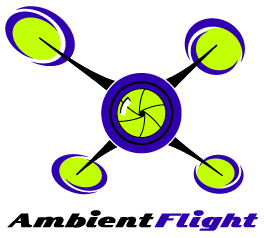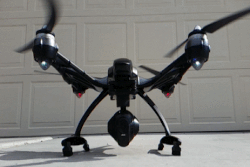

 Yuneec Announces Collaboration with Ocean Alliance to Aid Groundbreaking Whale Research
Yuneec Announces Collaboration with Ocean Alliance to Aid Groundbreaking Whale Research
Typhoon and Tornado Multicopters Will Collect Data By Flying Into “Cloud of Snot”
ONTARIO, Calif. (November 16, 2015) – Yuneec International, the world leader in electric aviation, today announced an exciting collaboration with Ocean Alliance, an organization dedicated to promoting ocean and human health. Ocean Alliance will use Yuneec’s Typhoon and Tornado drones to collect data from whales in a non-invasive way, making the collaboration an important breakthrough in whale research.
“As a company we are passionate about seeing our drones provide positive technological solutions to modern day issues,” said Shan Phillips, CEO of Yuneec USA. “We couldn’t be more proud to collaborate with Ocean Alliance and look forward to a future where our drones can be used in positive, real life situations that have an impact on the world we live in.”
To conduct the research, a petri dish will be attached to Yuneec multicopters flown into the cloud of spray exhaled by whales when they surface. Essentially, the Typhoon and Tornado multicopters will fly into a cloud of snot, which is why Ocean Alliance refers to their Yuneec drones as “snot bots.”
“Yuneec is giving us state-of-the-art drones to conduct marine mammal research that exceed our mission parameters,” said Iain Kerr, the CEO of Ocean Alliance. “This is a lottery win for us as a company, the animals we study, and ultimately, humanity.”
The samples collected can tell scientists about the health and fitness of the whale. Yuneec’s near silent multicopters allow scientists to retrieve this data without the whale taking notice, preventing the infliction of stress upon the whale. “Snot bots” hover several yards above the surface of the water while human operators are close to a mile away (must disable the geo-fence so the operator can be more than 300 feet away?).
In contrast, most current methods of physical sample collection involve pursuit in a motorized boat and firing a biopsy dart from a crossbow. In addition to causing stress to the whales, it is believed this approach can skew results, especially with regard to understanding stress levels for whales outside of captivity.
“Snot bots are designed to remove the potential harm caused to whales during the research process. After an extensive search, we determined the Yuneec product line of quiet and sophisticated drones gives us the best possibility of success,” Kerr added.
A special discussion about Yuneec’s partnership with Ocean Alliance will take place at the Drone World Expo on November 17 at 10:15 a.m. in the Exhibit Hall of the San Jose Convention Center.
About Yuneec International
Founded in 1999, Yuneec is the world leader in electric aviation. With hundreds of patents held, Yuneec’s core technologies power manned aircraft, Typhoon and Tornado drones and its market-leading line of radio controlled aircraft for the hobby market. With offices in North America, Europe and Asia, Yuneec manufactures over one million units a year that are sold under OEM/ODM brands as well as the Typhoon brand of multicopters. The company’s achievements include the introduction of the industry’s first “Ready to Fly” radio controlled electric powered airplane, and the design and manufacture of market-leading radio controlled helicopters and microcopters.
About Ocean Allicance
Ocean Alliance, Inc., a 501(c)3 organization, was founded in 1971 by biologist Roger Payne. Led by Dr. Payne and CEO, Iain Kerr, Ocean Alliance collects a broad spectrum of data on whales and ocean life relating particularly to toxicology, behavior, bioacoustics, and genetics. Ocean Alliance works with scientific partners to advise educators and policy makers on wise stewardship of the oceans to: reduce pollution, prevent the collapse of marine mammal populations, maintain human access to fish and other sea life, and promote ocean and human health.
You must be logged in to post a comment.